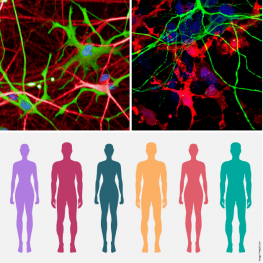Start
July 15, 2020 - 4:10 pm
End
July 15, 2020 - 6:30 pm
Glial cells represent an important population of cells in the nervous system, yet their multiple functions remain to be fully understood. Whereas neurons generate and propagates electrical and chemical signals, glial cells assume full responsibility for modulate neuronal function and signalling and to keep the homeostasis and defence of the central nervous system (CNS). In the past, glial cells have been considered merely passive contributors to brain function. However, this view changed in the past few years and glial cells have been changing their role from support cells to protagonists. There are many different types of glia. In this satellite event named as “The role of Glial cells in the Era of Personalised Medicine”, we will focus on Astrocytes and microglia. Astrocytes a star shape cells play a critical role in the homeostasis and function of the CNS. Astrocytes do not just provide trophic, metabolic, and structural support for neurons, but also play an active role in complex neuronal‐glial communication, regulation of synapse formation, function and plasticity and regulation of blood flow. Microglia cells are the immune cells of the central nervous system and consequently play important roles in the elimination of pathogens, protein aggregates and soluble antigens that can danger the CNS. Microglia also control removal of apoptotic neurones and participate in shaping synaptic connectivity in the developing brain. Although abnormal glial function has been described as an early pathological feature commonly observed in several neurodegenerative diseases. The role of glial cells in the pathogenesis of Neurodegenerative diseases and in neurological conditions have been underestimated and these cells were considered as mere secondary responders in the pathological process. However, over the past decades, with the emergence of new technologies and modelsystems (cell cultures such as iPS cells and genetics), considerable progress was achieved towards our understanding of glial function, revealing a central role for these cells in the brain development, aging and progression of neural pathologies, including neurodevelopmental disorders, neurodegeneration, and demyelinating pathologies. The purpose of this Satellite symposium is to facilitate the free exchange of scientific information about the glial cells and your roles in Neurodegeneration and others neurological conditions, and how these cells can offer alternative approaches for investigations that may open avenues to search for new mechanisms and potential targets for personalized medicine. This Symposium can help with the development and dissemination of knowledge in the field of glial cells in the disease. This scientific exchange can inspire new findings, generate new concepts, and refresh and stimulate the seekers of new knowledge.

